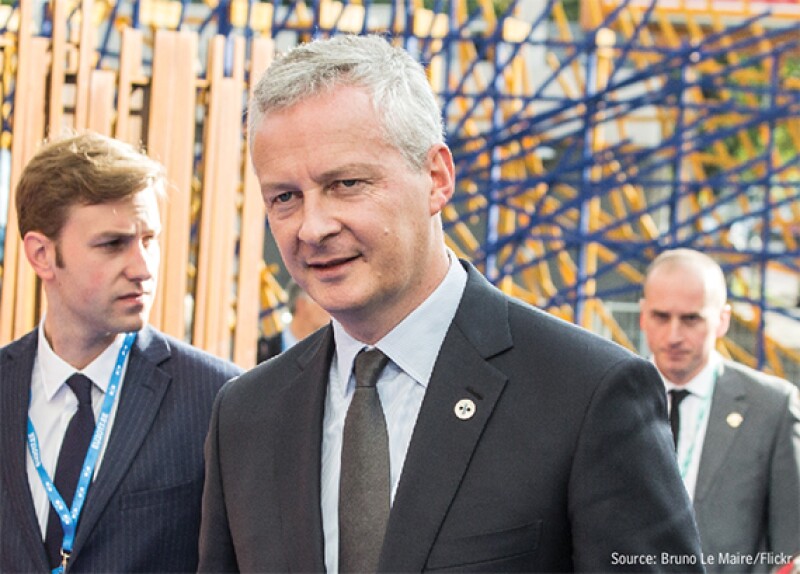
|
Bruno Le Maire is a new entry this year |
Since becoming the French finance minister in May 2017, Bruno Le Maire has made his tax views known to anyone who will listen and to those who share his opinions on enacting changes that will see governments win the 'fair share of tax' debate.
His desire to make changes and firm stance on tax matters, despite being in his role for less than a year, has won him a place in the Global Tax 50.
This French politician and former diplomat has been attacking the US multinationals that he believes to not be paying enough tax and is on a quest to change this – whether it is through the courts or an EU-wide agreement on measures such as a digital tax framework or an equalisation tax.
So far, Le Maire has attacked Airbnb, challenged Google on its permanent establishment status, joined forces with Germany, Spain and Italy to lobby for an EU-wide approach, and made changes domestically that have been both welcomed and detested by businesses.
Most recently, Le Maire sided with many tax justice activists when he said that jurisdictions on the EU tax blacklist should face sanctions for their non-compliance to force them to change. "Having a list of countries is one step, but we also need sanctions and we have to implement the sanctions," he said, the Financial Times reported. "We cannot accept any longer to have tax evasion."
In November, he fought back at criticism over the one-off corporate surtax to recover the €10 billion ($11.7 billion) lost in repaying taxpayers for a tax on dividends that the courts said is against the French Constitution. When the banks called for an exemption to be made for mutual, the finance minister dismissed them. He argued that the law must go ahead as it already stands and any such exemption would be unconstitutional.
A month earlier, however, Le Maire offered some rest bite for the corporate taxpayers that he has been attacking. In the 2018 budget, Le Maire, together with Gérald Darmanin, minister of public action and accounts, proposed measures to boost the competitiveness and attractiveness of France to foreign investors, as well as support investment and innovation, and meet its climate change commitments under the Paris Agreement. This includes cutting the corporate tax rate and enabling economic growth.
But Le Maire will not been remembered for these things as his highlights of 2017. His stamp on the tax landscape stems from the September Economic and Financial Affairs Council (ECOFIN) meeting where he introduced a political statement, with the backing of Germany, Italy and Spain, to "no longer accept that these companies [such as Google, Amazon, Apple and Facebook] do business in Europe while paying minimal amounts of tax to our treasuries".
The ministers have suggested introducing a turnover tax that would impose a higher tax burden on companies by charging tax on the national turnover of tech companies, rather than taxing their profits. They claim this is necessary to gain a fair contribution from digital platforms, but the proposal has raised fears among other leaders of EU member nations that big businesses could shun the EU and instead grow their businesses in Asia where the tax policies are often much friendlier.
Despite the fears that a tough stance on MNE taxation could harm the EU, Le Maire is undeterred in his campaign for multinationals to pay a fair share of tax.
With Le Maire's tax aspirations, International Tax Review suspects this won't be the last time he appears on the Global Tax 50.
The Global Tax 50 2017 |
|
|---|---|
The top 10 • Ranked in order of influence |
|
6. Arun Jaitley |
|
The remaining 40 • In alphabetic order |
|
| The Estonian presidency of the Council of the European Union |
|
| International Consortium of Investigative Journalists (ICIJ) |
|
| United Nations Committee of Experts on International Cooperation in Tax Matters |
|









